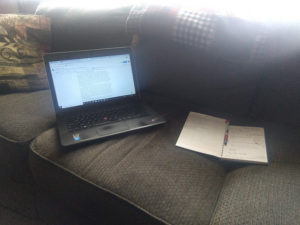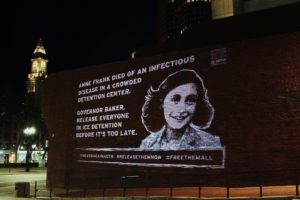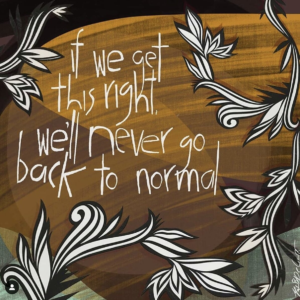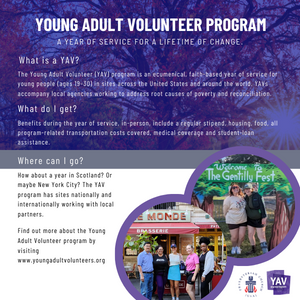“Know that we are connected in ways that are terrifying and beautiful” -Lynn Ungar
We are living in an unprecedented time. This moment implores us to recognize our common humanity. Now more than ever, we are able to see that the health of the most vulnerable among us determines the health of us all. The COVID-19 pandemic has magnified existing inequalities. It has grabbed us by the shoulders and shaken us. Personally, witnessing the effects of the novel coronavirus has pushed me to confront my privilege in ways I had never imagined. While it all seems a bit overwhelming, I am encouraged by a community that continues to respond to injustices with resilience and courage.
I have heard people saying that COVID-19 is reminding us that we are all equal, regardless of our culture, gender, race, or socioeconomic status. This statement, though, could not be further from the truth. The virus itself does not discriminate. However, the society that it is ravaging does. The COVID-19 pandemic is revealing just how unequal and unjust the distribution of resources in our communities are. During this time, I am able to retreat into my home. My stipend is not dependent upon me going into the office everyday. Even if it were, I have a savings account and social network that would sustain me. I am also able to remain isolated as I travel to and from the grocery store. As I practice socially distancing, I am reminded of all of the people who are unable to do so. Our society has made the coronavirus about culture, gender, race, and socioeconomic status. The coronavirus is exacerbating systemic inequities, endangering marginalized communities.

Photo of my home office aka my couch.
As the Advocacy and Outreach Coordinator at St. Francis Community Services, my job has not stopped amidst the pandemic. In fact, the needs of the community in which I serve have been heightened. COVID-19 puts migrants, especially those that are unauthorized, at an elevated risk. In the United States, unauthorized immigrants face insurmountable barriers to obtaining healthcare. They are barred from participating in Medicare, Medicaid, the Children’s Health Insurance Program, and the Marketplace and only have limited access to employer-sponsored health insurance. Not only are they denied access to care, but unauthorized immigrants also face fear and uncertainty every time they obtain critical services. St. Francis Community Services, along with countless others, is working to ensure that everyone has access to care, regardless of their immigration status. It is imperative that everyone feels safe while accessing vital services like testing and treatment.
In a letter to the Acting Secretary of Homeland Security, the USCCB Committee on Migration, the Catholic Health Association, Catholic Charities USA, and CLINIC wrote:
“DHS should reconsider all deportations, immigration arrests, mass raids, detentions and enforcement actions and give priority to removing barriers to testing, treatment, and protecting public health. An effective community-based response to COVID-19 requires all people living within our borders to contribute to the common good. Barriers to treatment or testing, as well as causing fear to stay home to care for children, will undermine ongoing healthcare efforts. Therefore, we urge DHS to review all of its practices and give the highest priority to preserving life and safety.”

Photo by Never Again Action who projected this image of Anne Frank onto the JFK Federal Building in Boston.
COVID-19 also puts migrants that are detained at an increased risk. As history has shown, detention centers are hotbeds of transmission for communicable diseases. Detainees are unable to practice social distancing. Detention centers also do not provide sufficient medical care nor sanitary supplies. No family should have to live in a detention center, especially not during a pandemic. Immigration and Customs Enforcement (ICE) should release all immigrants in detention. I have been spending some quarantine time writing letters to the ICE Field Office Director. I have also been contacting my elected officials asking them to put pressure on ICE to release all detained immigrants.

Art by Kate Deciccio who encourages healing toward progress.
During this pandemic, I have been encouraged to find concrete ways to love my neighbors. Advocacy for just and humane immigration policies is one way to do that. I have also seen the St. Louis community come together in beautiful ways. Solidarity groups and mutual aid organizations have been created. I have also seen people checking in with, giving groceries to, and translating documents for their neighbors. As a community, people are acting boldly to care for and protect each other.
There is still, however, a lot of work to be done. We must move beyond surface-layer responses. Now more than ever, we are witnessing the inequity in our systems. At the same time, we are realizing just how inextricably connected we all are. This pandemic is calling us to work toward systemic change that is grounded in the dignity of all people. I hope that we will answer the call. I hope that we will do better.
Be sure to follow CVN’s blog to hear more about Gabby’s service journey!
 Gabriele Eissner is a volunteer with the Loretto Volunteer Program and a CVN Serving with Sisters Contributor. This blog series is sponsored by our VOCARE Initiative, thanks to the support of the Conrad N. Hilton Foundation.
Gabriele Eissner is a volunteer with the Loretto Volunteer Program and a CVN Serving with Sisters Contributor. This blog series is sponsored by our VOCARE Initiative, thanks to the support of the Conrad N. Hilton Foundation.


 Thousands of faith-based service opportunities can be at your fingertips with the RESPONSE. Download the latest edition today!
Thousands of faith-based service opportunities can be at your fingertips with the RESPONSE. Download the latest edition today!
